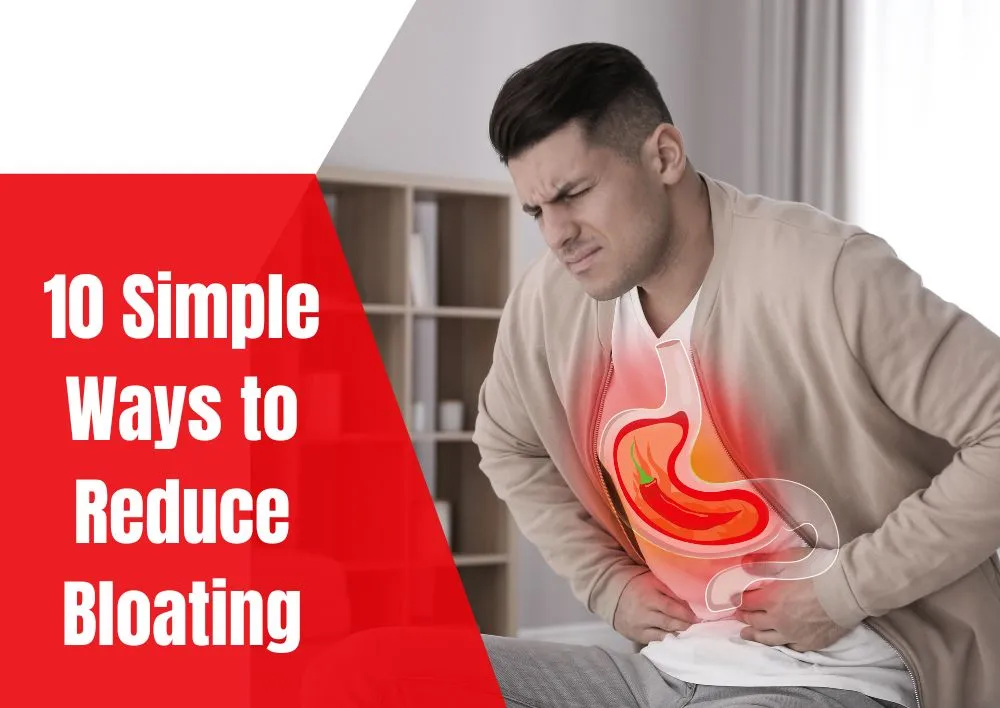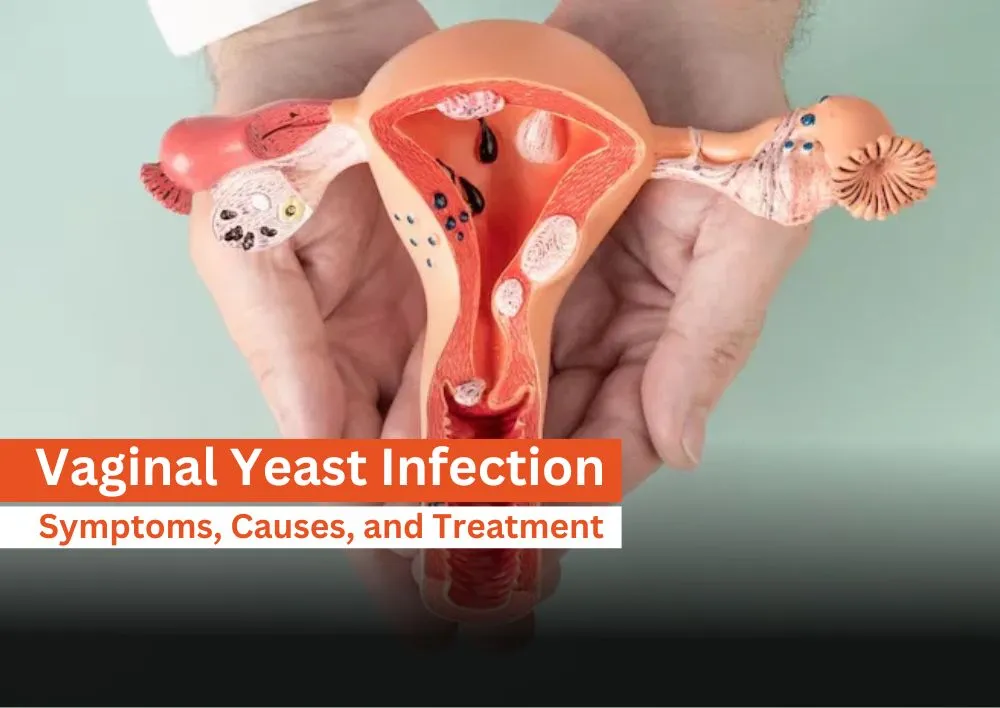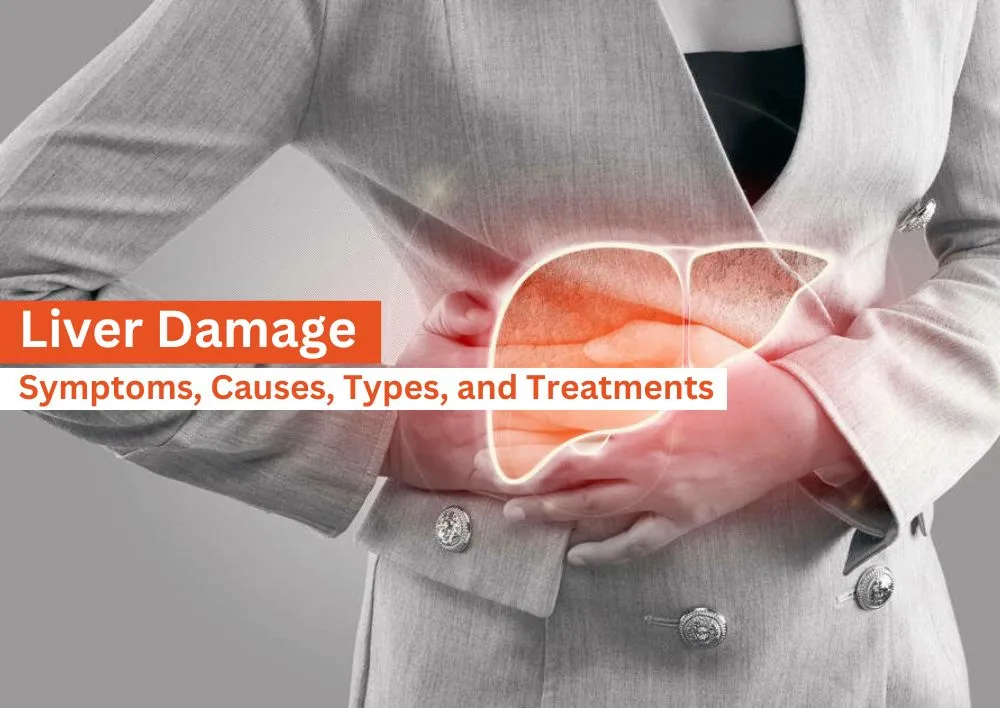10 Simple Ways to Reduce Bloating and Feel Your Best
Bloating is a common discomfort that many people experience at some point in their lives. Whether it's caused by digestive issues, overeating, or certain foods, the feeling of a swollen or puffy abdomen can be not only physically but also mentally taxing. Fortunately, there are easy and effective ways to relieve bloating and promote a healthier digestive system.
Finding the right gastroenterology doctor near you can help you get the right treatment. Miracles Apollo Cradle/Spectra is the best hospital for bloating treatment, boasts a highly experienced team of bloating treatment doctors to find the root cause of the problem and provide you with the best treatment to help you get rid of bloating and its underlying problems.
Don't worry! Our expert gastroenterology doctor is here to guide you on why this happens and how to reduce bloating.
What is Bloat?
Bloat refers to the sensation of fullness, tightness, or swelling in the abdomen. It is often caused by the accumulation of gas in the digestive system, resulting in a feeling of distension or pressure in the stomach. This common discomfort is experienced by many people and can be triggered by various factors.
Symptoms of Bloating
Bloating typically occurs with several symptoms, and individuals may experience a combination of the following:
-
Feeling Full or Tight: Feeling of fullness in the abdominal area, making the stomach feel tight.
-
Abdominal Distension: The sensation of a swollen or enlarged abdomen.
-
Excessive Gas: Increased passing of gas through flatulence.
-
Discomfort or Pain: Mild to moderate discomfort or pain in the abdominal region.
-
Changes in Bowel Habits: Bloating may be related to diarrhea, constipation, or alternating between the two.
-
Cramping: Mild to moderate cramping sensations in the abdomen.
-
Visible Swelling: Sometimes, the abdomen may swell or bulge.
-
Tenderness: The abdominal area may be tender to the touch.
-
Gurgling Sounds: Audible noises coming from the stomach or intestines due to the movement of gas.
What are the causes of Bloating?
Bloating in the stomach can have several causes, but it usually results from a buildup of gas, solids, or liquids in the digestive system. Here are some common factors that contribute to bloating:
-
Gas Formation: Certain foods, especially those high in fiber, artificial sweeteners, or carbohydrates such as beans, lentils, broccoli, cabbage, and carbonated drinks, may lead to gas formation.
-
Constipation: Irregular bowel movements or difficulty passing stool can cause a feeling of fullness and bloating.
-
Swallowing Air: Poor habits such as talking while eating, eating or drinking too fast, using straws, chewing gum, or consuming carbonated beverages can lead to the intake of air, resulting in bloating.
-
Fluid Retention: High sodium intake can lead to water retention, causing bloating.
-
Gastrointestinal Disorders: Conditions such as irritable bowel syndrome (IBS), inflammatory bowel disease (IBD), celiac disease, and other gastrointestinal disorders can cause chronic bloating.
-
Food Sensitivities: Some individuals may experience bloating due to specific food sensitivities or intolerances.
-
Overeating: Consuming large meals or indulging in rich and fatty foods can overwhelm the digestive system, leading to bloating.
-
Bacterial Imbalances: Overgrowth of bacteria in the gut, known as small intestinal bacterial overgrowth (SIBO), can cause extra gas production and bloating.
-
Medications: Certain medications, such as antibiotics, laxatives, or those containing sorbitol, can lead to bloating as a side effect.
-
Hormonal Changes: Women may experience bloating as a symptom of hormonal changes, especially during menstruation, pregnancy, or menopause
Global Statistics
Digestive disorders, including conditions that may cause bloating, are relatively common. According to the World Gastroenterology Organization, functional gastrointestinal disorders (FGIDs), which include conditions like irritable bowel syndrome (IBS), impact a significant proportion of the global population.
10 Simple Ways to Reduce Bloating:
-
Stay Hydrated: Dehydration can contribute to bloating. Water helps flush out extra sodium and supports proper digestion, reducing the likelihood of bloating. It's important to drink an adequate amount of water throughout the day.
-
Exercise Regularly: Physical activity promotes the digestive system. It helps push gas through the intestines and reduces bloating. Aim for at least 30 minutes of mild exercise most days of the week, whether it's walking, jogging, or cycling.
-
Mindful Eating: Eating too quickly can lead to swallowing air, contributing to bloating. Practice mindful eating by chewing your food slowly and savoring each bite. This aids digestion and prevents overeating.
-
Limit Carbonated Drinks: Carbonated beverages, including sodas and sparkling water, can increase gas in your digestive system, leading to bloating. Opt for still water or herbal tea to stay hydrated.
-
Lower Sodium Intake: High sodium levels can cause bloating. Be mindful of your salt intake and choose fresh, whole foods over processed and packaged options.
-
Include Probiotics: Probiotics, usually present in fermented foods like yogurt, promote a healthy balance of gut bacteria. A well-functioning digestive system can improve overall gut health and reduce bloating.
-
Limit Gas-Producing Foods: Certain foods, including beans, lentils, broccoli, and cabbage, are known to produce gas during digestion, leading to bloating. While these foods are nutritious, consider moderating your consumption and ensuring proper cooking to minimize their gas-producing effects.
-
Herbal Teas: Certain herbal teas, such as peppermint or ginger tea, have natural soothing properties that can reduce digestive discomfort. Enjoying a warm cup of herbal tea after meals can help relieve bloating and support digestion.
-
Identify Food Sensitivities: Some individuals may experience bloating due to specific food sensitivities. Keep a food journal to track meals and symptoms, helping you identify and eliminate potential trigger foods causing bloating.
-
Avoid Chewing Gum: The artificial sweeteners in the gum may contribute to digestive issues. Chewing gum can also cause you to swallow air, leading to bloating. If you have a habit of chewing gum, consider cutting back to reduce bloating.
Conclusion:
Reducing bloating is a straight forward process. By incorporating remedies for a bloated stomach, such as simple lifestyle modifications, you can promote better digestion, reduce discomfort, and enhance your overall well-being. These strategies will help you find what works best for you and naturally reduce bloating.
For more information or personalized treatment for bloating problems, meet our expert gastroenterology doctor in Gurgaon at Miracles Healthcare. As the best hospital in Gurgaon for bloating treatment, we are dedicated to providing comprehensive care for your digestive health.
Miracles Healthcare offers comprehensive healthcare services through multiple facilities: Miracles Apollo Cradle, Miracles Apollo Cradle/Spectra, Miracles Fertility & IVF Clinic, and Miracles Mediclinic. Our facilities are located in Sec 14, Sec 56, and Sec 82, making daily healthcare more convenient for the people of Gurgaon.
If you experience persistent bloating associated with pain, changes in bowel habits, weight loss, or bleeding, it is essential to consult with a bloating specialist to rule out other potential conditions.





_in_Pregnancy.webp)






Was the information useful?
0 0